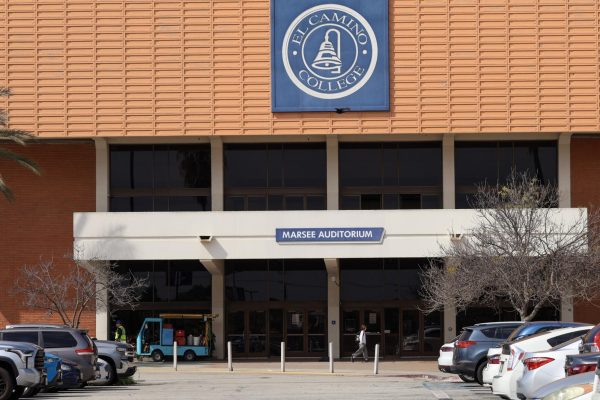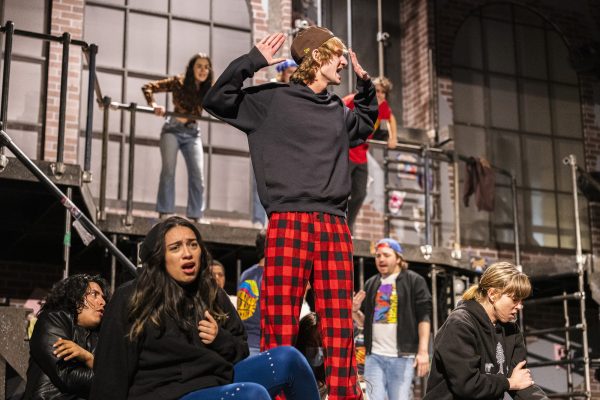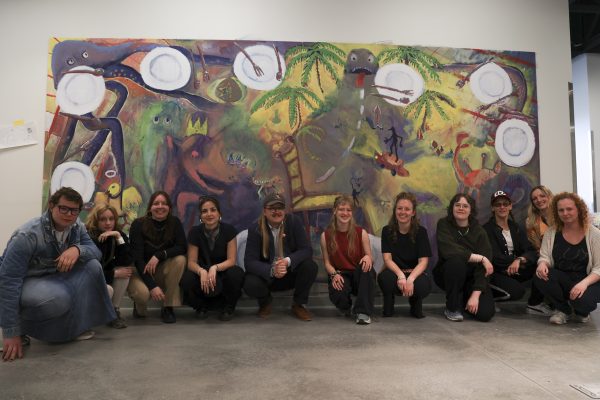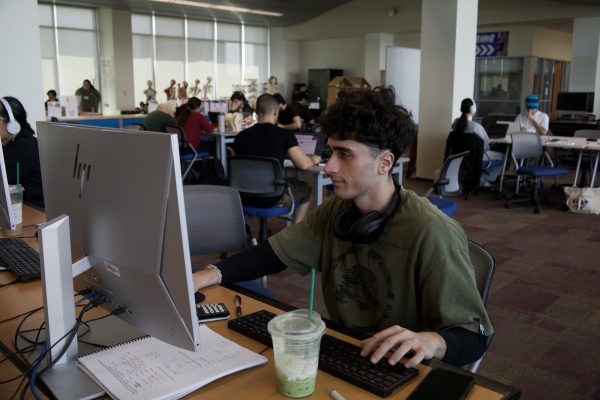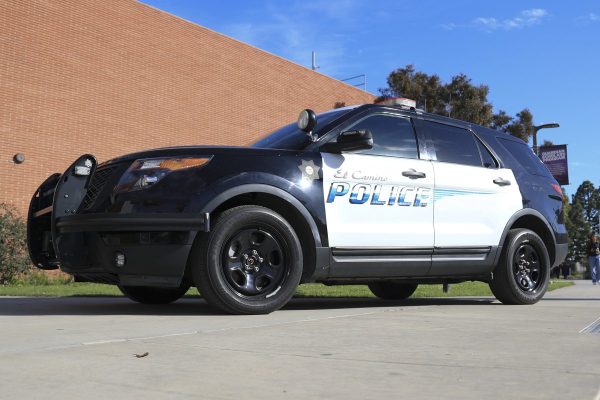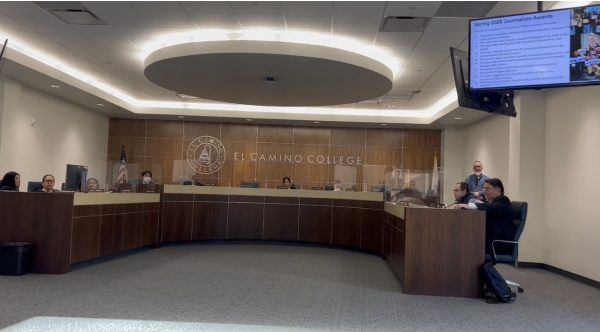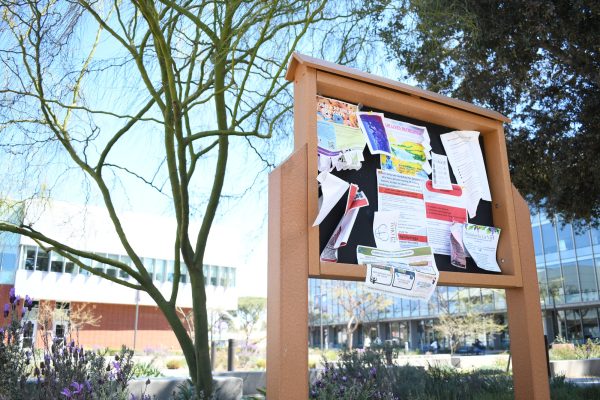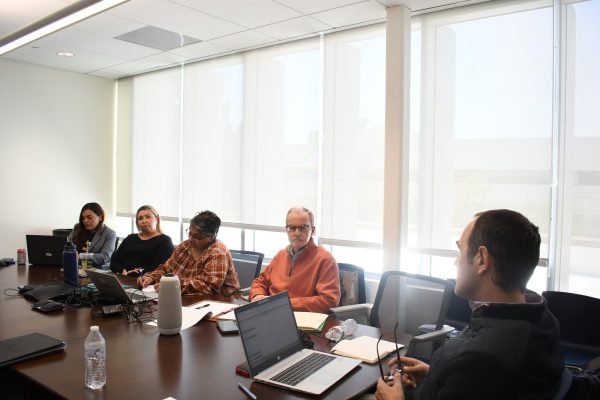Don’t Read This
If you ignored the title, defiantly reading this article, then happy National Banned Book Week. From Sept. 21-27, Banned Book Week celebrates intellectual freedom and non-censorship. Here at EC students and teachers can practice their First Amendment rights by reading a wide-range of literature.
Professors on campus work with controversial books in their curriculum. Many controversial books have been challenged or banned from educational institutions.
Intellectual freedom instigates mental growth. “It’s through literature that we learn about other people and experiences, and through learning we can have compassion” Christina Nagao, English professor, said. By educating ourselves, we can empathize with others and enrich our lives with new ideas. “Literature has the power to change the world,” Nagao said.
Nagao teaches with controversial books, Angels in America and Maus, in her English 1B class. Angels in America is a play about homosexual characters struggling with the AIDS epidemic and societal expectations. Maus is a tragic account of the holocaust from the perspective of a Jewish family.
“These are two misunderstood groups in history. So by reading their stories, students get a better understanding, have compassion, and maybe even take action,” Nagao said. These books provide a historical lens on misunderstood groups of people.
Books are powerful objects; books have the ability to provoke laughter, sadness, thought, and even sleep. Books also provide a platform for creativity and artistic expression. It is precisely this reason that books have been banned and burned throughout history; in an attempt to censor thought, books have been banned for radicalism, crudity, religion, homosexuality, and many other reasons.
Among the most frequently challenged books between 2001 and 2013 are pop culture hits like The Hunger Games series, and Captain Underpants. Classics have been frequently challenged and censored. Moving and thought provoking tales like The Adventures of Huckleberry Finn, Of Mice and Men, and Catcher in the Rye have all, at one time, been banned or censored. These stories examine topics like slavery, working-class Americans, and rebellious teenagers. “I think books should not be banned, because it’s limiting children from expanding their minds. It’s like we are forcing kids to go to school to learn more, but in the end we’re restricting them from not being able to read books that can really expand their minds,” Joey Burton, 20, Business major, said. This paradox of education does not exist at EC.
Rachel Williams, English professor, also uses contro versial books, like Southland, to broaden the scope of her students. In the six years Williams has taught here, she has received no complaint from faculty regarding her curriculum. “Censorship is wrong. People need to have the freedom to read about different views,” said Williams.
The freedom to read controversial books should be individuated. “I think it’s more of the personal opinion. If you want to read it, read it. If you don’t want to, don’t. I don’t think it should be banned like for everybody,” Esther Park, 21, English major, said. Individuals — not institutions — should have the ability to decide what books are inappropriate. Controversial classics should be accessible to all students.
Rodger Herrera, 21, English major, recommends A Brave New World, a book challenged for its insensitivity, offensive language, and sexually explicit content; This controversial novel is taught in high school classes throughout the country. It is good to teach books like A Brave New World, because it broadens people’s intellectual horizons, Herrera said.
“[Books] open up new ideas and give readers different points of view on religion, politics, and sex” Patrick Papetti, book salesman at the EC bookstore, said Books should not be banned, said Papetti.
History is a highly censored subject. “(I read a)New York Times article, which showed the history of how history books have talked about the Indians, and how the vast majority of them skipped over the suffering and massacre of Native Americans until the 1980’s and 1990’s,” Anna Mavromati, English and journalism instructor, said. Pivotal events in history are sometimes omitted to help maintain a sense of patriotism.
Mavromati had the opportunity to read highly controversial texts since she was home-schooled. “I was home-schooled and got to study things like Bikini Island and learned that we weren’t always the good guys.” The Bikini Islands served as America’s nuclear bomb testing grounds during the Cold War. The fallout of these tests devastated locals living on the islands.
Censored historical accounts inhibit growth nationally. George Orwell’s words from his controversial novel 1984 comments on the importance of learning history.“He who controls the past controls the future. He who controls the present controls the past” (Orwell). These warnings remain at the core of many human problems still rampant in the 21st century.
According to Burton, who recommends George Orwell’s texts 1984 and Animal Farm, books are central to the academic experience. Censoring books restricts knowledge expandsion. In order to foster educational growth, a wide-range of literature and intelluctual freedom is key to mental growh. “A lot of our education is from books so… why are we going to limit people” Burton said.
Although there are a lot of advantages to allowing full access to literature, censorship still occurs today. “(Censorship occurs) due to lack of understanding and maybe even ignorance” Nagao said. Challenged texts, such as Catcher in the Rye, have a lot of educational value regardless of the profanity and sexual content.
Banned Book Week celebrates intelluctual freedom and access to non-censored literature. The EC bookstore carries an abundance of controversial literature, such Angels in America and Maus I/II. According to Papetti, no subject matter is banned except for porn. Intelluctual freedom is at our fingertips at EC


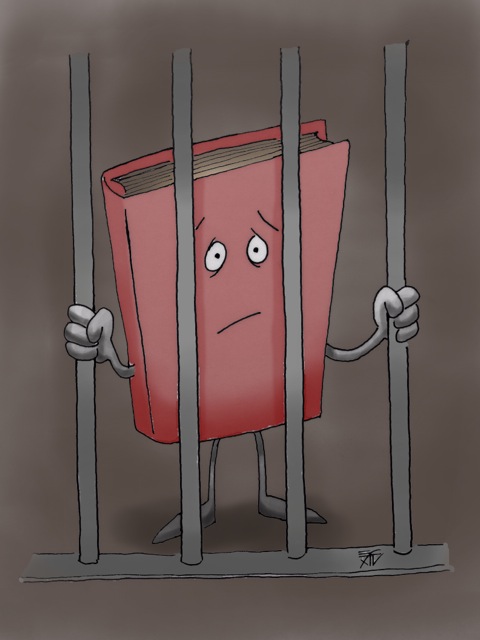
![Physics and astronomy professor Susan Stolovy presents astronomical news and updates to attendees at the first planetarium show of the semester at El Camino College on Friday, March 28. Prior to becoming a professor at ECC, Stolovy completed her doctorate in physics and worked as an astrophysicist for NASA and the California Institute of Technology on spacecraft missions. "[I'm] still very tuned into what's going on in the world of research as well, and I hope to bring a little bit of my experience into the classroom," Stolovy said. (Nikki Yunker | The Union)](https://eccunion.com/wp-content/uploads/2025/03/planetarium-Made-with-Clipchamp-3-frame-at-0m28s-600x338.jpg)
